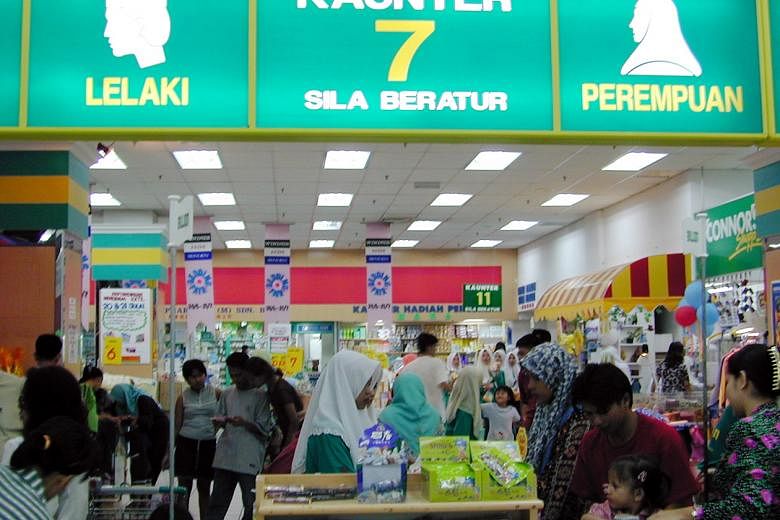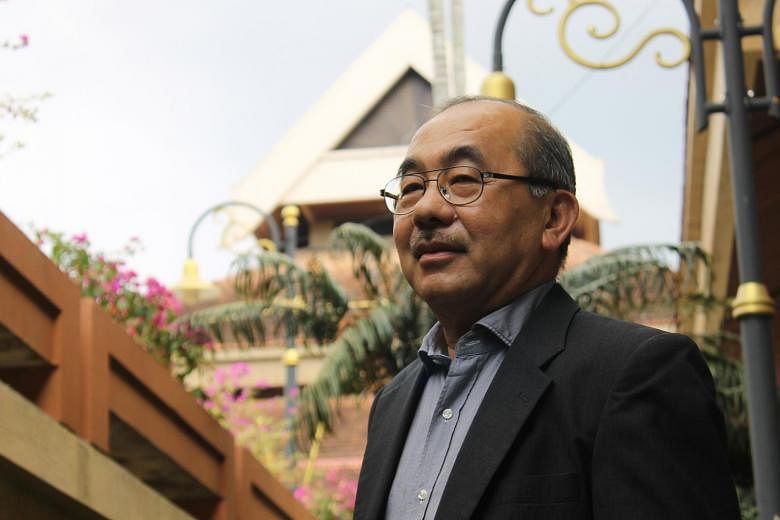It is midday on a Friday in Kota Baru, and the streets are deserted in the slow-moving capital of Malaysia's east-coast state of Kelantan. Shops are closing and all the men head to mosques for prayers.
Little wonder. The state government last year began enforcing a 10-year-old by-law that fines and jails Muslim men who skip Friday prayers three times in a row.
The ruling Parti Islam SeMalaysia (PAS) dictates that Kelantanese live by some laws not found elsewhere in Malaysia.
Hypermarkets have separate check-out counters for men and women. The last cinema closed down more than a decade ago, a business killed by a rule that lights should be kept on during screenings to ensure young couples focus on the movies.
The rural state - where agriculture remains the mainstay - has been run by PAS since a fiery, diminutive Islamic cleric, Nik Aziz Nik Mat, won state elections in 1990. He promoted religious piety, not material wealth, a move which sacrificed economic growth - Kelantan is third poorest of Malaysia's 13 states, after Sabah and Terengganu.
Today, Datuk Nik Aziz's successors are taking his Islamic conservatism a step further.
The state assembly approved a motion in March this year - just a month after his death at age 84 - to implement the Islamic penal code, or hudud, in Kelantan. Hudud allows for the amputation of the hands of thieves, the stoning of those found guilty of adultery and whipping for those caught consuming alcohol.
Critics denounce the laws as harsh but supporters say they are part of God's will.
"If you have not done anything wrong or if you have no bad intentions, there is nothing to fear," says state executive councillor Anuar Tan, a soft-spoken Muslim convert.
"Hudud is to save people's lives, dignity, property, religion. Non- Muslims have nothing to fear, it will not apply to them," he says, brushing aside resistance from close allies in the opposition, such as the Democratic Action Party. The opposition Pakatan Rakyat alliance has all but collapsed over the hudud issue.
Mr Phang Soon Yaw, former Kelantan state exco member, is among those concerned.
He cited several incidents, among them a 17-year-old non-Muslim who was issued a summons for giving his girlfriend a piggyback ride in a park in 2012.
"If the incident had not been publicised by the press, the teenager would have been fined. Under hudud, the punishment for such offences would be heavier," said Mr Phang.
Former law minister Zaid Ibrahim, who is from Kelantan, is another staunch critic. "They are criminalising everything," he said.
At the busy Pasar Besar Khadijah fresh produce market, Ms Rohaini Ismail is fearful: "I am afraid of it and I feel sorry for anyone who is wrongly convicted and sentenced to such harsh punishment."
PAS still has some way to go to turn Kelantan into a state of piety.
During weekends, men cross the border into Golok in southern Thailand, where prostitution is rampant and alcohol is sold openly.
Many Malaysians - both Muslim and non-Muslim - remain concerned that once hudud is implemented in Kelantan, it will be pushed to the centre of politics in the rest of the country.


